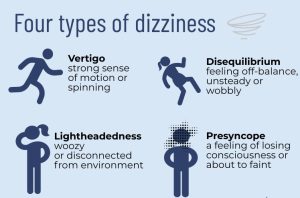Last week, Nigerian rapper and music producer Oladipupo Oladimeji aka OlaDips, was rumoured to have died.
A few days after the news broke, there were airs of uncertainty concerning the singer’s life, as many of his friends came out to say that they were no longer exactly sure of the news.
Though the 28-year-old singer and his family have continued to maintain silence on the controversial news, a friend of OlaDips and fellow artiste, Zlatan Ibile, had revealed the conversations he had with the rapper before the news of his alleged death broke.
According to Zlatan, OlaDips had confided that his health hadn’t been optimal and that he mostly felt as if his head was missing from his shoulders.
In the post shared by Zlatan on his Instagram story last Wednesday, OlaDips had reportedly detailed his health struggles, saying he’d been ill for months and dealing with insomnia.
“My brother, I don’t even know where to start from. Been on it for months, but I guess I’ll be fine,” OlaDips stated in the alleged chat with Zlatan.
“At this point, I don’t know. I been think say nah stress cos I no dey really sleep at night. Right now, it feels like my head is no longer on my neck. It feels light,” he added.
Zlatan asked further how long the late rapper had been dealing with the alleged health issue and OlaDips was said to have responded: “Zee, make I no lie, its been a while. I been no dey really active since self. Nah because Dipsciples dey DM me everyday say make I update them today. But I don go hospital come back.”
But then, what is light-headedness?
 Light-headedness explained
Light-headedness explained
According to experts at online platform HealthDirect, light-headedness is when you feel dizzy and like you might faint.
Feeling ‘lightheaded’ is a general term that means you feel close to passing out. The sensation can be unnerving, but it actually serves to stop you from overexerting yourself or otherwise trying to do things your body isn’t prepared to do right then.
“Feeling lightheaded forces, you to stop, rest, and reconsider before you push yourself too far,” HealthDirect says.
Indeed, experts do caution that no one should ignore the feeling of light-headedness. And as a matter of medical fact, it must be checked out with a qualified medic and addressed.
Why? It is simply because though light-headedness is not usually caused by anything life-threatening, it could be fatal as well, indicating a serious underlying medical condition, so you need to be careful by ruling out all assumptions.
“Don’t ignore it. Even if the light-headedness does not have a serious cause, it could lead to serious injuries from a fall. And at the worst, the cause may itself be life-threatening,” says Dr. Shamai Grossman, an associate professor of emergency medicine at Harvard Medical School.
If you feel lightheaded and/or woozy, Dr. Grossman recommends having a drink of water or orange juice and lying down. If symptoms last more than 15 minutes, he says it’s time to seek medical help in an urgent or emergency care setting. Even if symptoms are brief, and even if you think you know the cause, report the light-headedness to your doctor.
feeling woozy, lightheaded, or a little faint is a common complaint among older adults, Although anybody can experience it
According to Dr. Grossman, feeling woozy, lightheaded, or a little faint is a common complaint among older adults, although anybody can experience it.
Basic causes of light-headedness
Eight basic serious causes of light-headedness have been identified to include:
Fainting or vasovagal Syncope: This occurs when the body overreacts to certain triggers such as the sight of blood or extreme emotional distress. The body coordinates a sudden drop of heart rate and blood pressure, causing reduced blood flow to the brain and a brief loss of consciousness.
Transient Ischemic Attack (TIA): Stroke interrupts normal circulation and significantly interferes with normal brain function — often starting with light-headedness.
Iron deficiency anaemia, dehydration, hyperventilation syndrome, hypertrophic cardiomyopathy, and orthostatic syncope (fainting), which is a type of loss of consciousness caused by rapidly standing up from a sitting position, and not enough blood reaches the head. This can cause a person to pass out, but then come back to consciousness without lasting effects.
Heart attack: Although less common, heart attack or significant changes in heart rate or rhythm (arrhythmia) is whereby events significantly disrupt circulation in the body system and can have light-headedness as one of the first symptoms.
According to physicians, most common consistent causes of light headedness include:
Simple dehydration: This causes blood volume to be reduced and the blood pressure to drop.
Low blood sugar: This means there may not be enough energy available for the brain to function normally. Going suddenly from very hot to very cold conditions (or vice versa, which makes it nearly impossible for the body to adjust quickly enough).
Dehydration is said to be one common cause of light-headedness, so try drinking some water. If your symptoms are worrying or do not go away, visit your doctor for a check up
Less common causes of light-headedness may include:
Orthostatic/postural hypotension: More likely in older adults, this means that you feel lightheaded and dizzy when you go from sitting to standing. This can simply be the result of aging, when the autonomic nervous system does not respond as quickly when you stand up, or it can be a side effect of medication.
Emotional causes: Such as a panic attack, which leads to hyperventilation.
According to online platform BuoyHealth, light-headedness may vary in severity, depending on the cause:
Not serious: Some causes, such as dehydration or low blood sugar, are easily remedied and not serious as long as they are addressed.
Moderately serious: Even moderate light-headedness can lead to fainting and/or falling, which can cause serious injury.
Serious: Light-headedness can be a serious symptom if it occurs following a head injury, recurs frequently, or is accompanied by signs of stroke or heart attack.
So, experiencing light-headedness? Check it out with your health caregiver. Get treated.


